
2013 is nearly all finished up and so I thought I'd spend a little time
writing up what was noteable in the last twelve months. When I did so I
found an unfinished draft from the year before. It would be a shame for
it to go to waste, so here it is.
2012 was an interesting year in many respects with personal
highs
and
lows. Every year I see a lots of "round-up"-style blog posts
on the web, titled things like "2012 in music", which attempt to summarize the
highlights of the year in that particular context.
Here's JWZ's
effort, for example.
Often they are prefixed with statements like "2012 was a strong year for music"
or whatever. For me, 2012 was not a particularly great year. I discovered quite
a lot of stuff that I love that was new to me, but not new in any other sense.
In Music, there were a bunch of come-back albums that made the headlines. I
picked up both of Orbital's
Wonky and Brian Eno's
Lux (debatably a
comeback: his first ambient record since 1983, his first solo effort since
2005, but his fourth collaborative effort on Warp in the naughties). I've
enjoyed them both, but I've already forgotten
Wonky and I still haven't fully
embraced
Lux (and
On Land has not been knocked from the top spot when I
want to listen to ambience.) There was also Throbbing Gristle's (or
X-TG)
final effort, a semi/post-TG, partly posthumous double-album swan song effort
which, even more than
Lux, I still haven't fully digested. In all honesty I
think it was eclipsed by the surprise one-off release of a live recording of a
TG side project featuring Nik Void of
Factory Floor: Carter Tutti Void's
Transverse, which is excellent. Ostensibly a four-track release, there's a
studio excerpt
V4 studio (Slap 1) which is available from (at least)
Amazon.
There's also a much more obscure fifth "unreleased" track
cruX which I managed
to "buy" from one of the web shops for zero cost.
The other big musical surprise for me last year was Beth Jeans Houghton and the
Hooves of Destiny:
Yours Truly, Cellophane Nose. I knew nothing of BJH,
although it turns out I've heard some of her singles repeatedly on Radio 6, but
her band's guitarist Ed Blazey and his partner lived in the flat below me
briefly. In that time I managed to get to the pub with him just once, but he
kindly gave me a copy of their album on 12" afterwards. It reminds me a bit of
Goldfrapp circa "Seventh Tree": I really like it and I'm looking forward to
whatever they do next.
Reznor's
How To Destroy Angels squeezed out
An Omen EP which failed to set
my world on fire as a coherent collection, despite a few strong songs
individually.
In movies, sadly once again I'd say most of the things I recall seeing would be
"also rans".
Prometheus was a disappointment, although I will probably rewatch
it in 2D at least once. The final Batman was fun although not groundbreaking to
me and it didn't surpass Ledger's efforts in
The Dark Knight. Inception remains
my favourite Nolan by a long shot.
Looper is perhaps the stand-out, not least
because it came from nowhere and I managed to avoid any hype.
In games, I moaned about having
moaning about too many
games, most of which are much older than 2012. I started
Borderlands 2 after enjoying
Borderlands (disqualified on age grounds) but
to this day haven't persued it much further. I mostly played the two similar
meta-games: The Playstation Plus
download free games in a fixed time period
and the more sporadic but bountiful
humble bundle whack-a-mole. More on
these another time.
In reading, as is typical I mostly read stuff that was not written in 2012.
Of that which was, Charles Stross's
The Apocalypse Codex was an
improvement over
The Fuller Memorandum which I did not enjoy much, but in
general I'm finding I much prefer Stross's older work to his newer; David
Byrne's
How Music Works was my first (and currently last) Google Books ebook
purchase, and I read it entirely on a Nexus 7. I thoroughly enjoyed the book
but the experience has not made a convert of me away from paper. He leans
heavily on his own experiences which is inevitable but fortunately they are
wide and numerous. Iain Banks'
Stonemouth was an enjoyable romp around a
fictional Scottish town (one which, I am reliably informed, is incredibly
realistical rendered). One of his "mainstream" novels, It avoided a particular
plot pattern that I've grown to dread with Banks, much to my suprise (and
pleasure). Finally, the stand-out pleasant surprise novel of the year was
Pratchett and Baxter's
The Long Earth. With a plot device not unlike Banks'
Transition or Stross's
Family Trade series, the pair managed to write a
journey-book capturing the sense-of-wonder that these multiverse plots are
good for. (Or perhaps I have a weakness for them). It's hard to find the lines
between Baxter and Pratchett's writing, but the debatably-reincarnated Tibetan
Monk-cum-Artificial Intelligence 'Lobsang' must surely be Pratchett's.
Pratchett managed to squeeze out another non-Discworld novel (
Dodger) as well
as a long-overdue short story collection, although I haven't read either of
them yet.
On to 2013's write-up...
 My job exposes me to a large variety of computing systems and I regularly use
Mac, Windows and Linux desktops. My main desktop environment at home and work
has been Debian GNU/Linux for over 10 years. However every now and then I take
a little "holiday" and use something else for a few weeks. Often I'm spurred on
by some niggle or other on the GNOME desktop, or burn-out with whatever the
current contentious issue of the moment is in Debian. Usually I switched to
Windows and I used it as an excuse to play some computer games.
Last November I had just such an excuse to take a holiday but this time I opted
to go for Mac. I had a back-log of Mac issues to investigate at work anyway.
I haven't looked back.
It appears I have switched for good. I've been meaning to write about this for
some time, but I couldn't quite get the words right. I doubted I could express
my frustrations in a constructive, helpful way, even if I think that my
experiences are useful and my discoveries valuable, perhaps I would put them
across in a way that seemed inciteful rather than insightful. I wasn't sure
anyone cared. Certainly the GNOME community doesn't seem interested in
feedback.
I turns out that one person that doesn't care is me: I didn't realise just how
broken the F/OSS desktop is. The straw that broke the camel's back was the
file manager replacing type-ahead find with a
search but (to seemlessly
switch metaphor) it turns out I'd been cut a thousand times already. I'm not
just on the other side of the fence, I'm several fields away.
Sometimes community people write about their concerns with whether they're
going in the right direction, or how to tell the difference between legitimate
complaints, trolls and whiners. When I look at conferences now, the sea of
Thinkpads was replaced with a sea of Apple Macs a long time ago now, and the
Thinkpads haven't come back. I'd suggest: don't worry about the whiners. Worry
about the leavers.
What does this mean for my Debian involvement? Well, you can't help but have
noticed that I've done very little this year. I've written nearly exclusively
about music so far. the good news is: I still regularly use Debian, and I still
intend to stay involved, just not on the desktop. I'm essentially only
maintaining two packages now,
lhasa and
squishyball. I might pick
up a few more (possibly
archivemail if the
situation doesn't improve) but I'm happy with a low package load; I'd like to
make sure the ones I do maintain are maintained well. The sum of all my
Debian efforts this year have been to get these two (or three) ship-shape. I
have a bunch of other things I'd like to achieve in Debian which are not
packages, and a larger package load would just distract from them. (We really
are too package-oriented in Debian).
My job exposes me to a large variety of computing systems and I regularly use
Mac, Windows and Linux desktops. My main desktop environment at home and work
has been Debian GNU/Linux for over 10 years. However every now and then I take
a little "holiday" and use something else for a few weeks. Often I'm spurred on
by some niggle or other on the GNOME desktop, or burn-out with whatever the
current contentious issue of the moment is in Debian. Usually I switched to
Windows and I used it as an excuse to play some computer games.
Last November I had just such an excuse to take a holiday but this time I opted
to go for Mac. I had a back-log of Mac issues to investigate at work anyway.
I haven't looked back.
It appears I have switched for good. I've been meaning to write about this for
some time, but I couldn't quite get the words right. I doubted I could express
my frustrations in a constructive, helpful way, even if I think that my
experiences are useful and my discoveries valuable, perhaps I would put them
across in a way that seemed inciteful rather than insightful. I wasn't sure
anyone cared. Certainly the GNOME community doesn't seem interested in
feedback.
I turns out that one person that doesn't care is me: I didn't realise just how
broken the F/OSS desktop is. The straw that broke the camel's back was the
file manager replacing type-ahead find with a
search but (to seemlessly
switch metaphor) it turns out I'd been cut a thousand times already. I'm not
just on the other side of the fence, I'm several fields away.
Sometimes community people write about their concerns with whether they're
going in the right direction, or how to tell the difference between legitimate
complaints, trolls and whiners. When I look at conferences now, the sea of
Thinkpads was replaced with a sea of Apple Macs a long time ago now, and the
Thinkpads haven't come back. I'd suggest: don't worry about the whiners. Worry
about the leavers.
What does this mean for my Debian involvement? Well, you can't help but have
noticed that I've done very little this year. I've written nearly exclusively
about music so far. the good news is: I still regularly use Debian, and I still
intend to stay involved, just not on the desktop. I'm essentially only
maintaining two packages now,
lhasa and
squishyball. I might pick
up a few more (possibly
archivemail if the
situation doesn't improve) but I'm happy with a low package load; I'd like to
make sure the ones I do maintain are maintained well. The sum of all my
Debian efforts this year have been to get these two (or three) ship-shape. I
have a bunch of other things I'd like to achieve in Debian which are not
packages, and a larger package load would just distract from them. (We really
are too package-oriented in Debian).
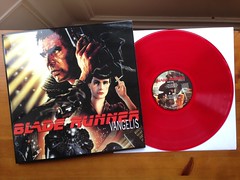 translucent red pressing
translucent red pressing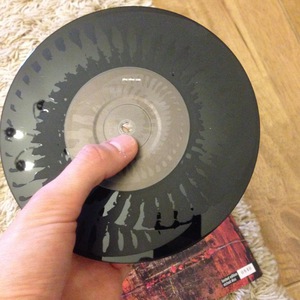


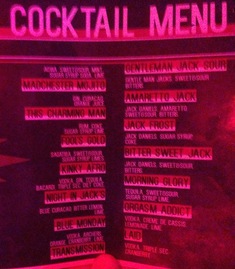
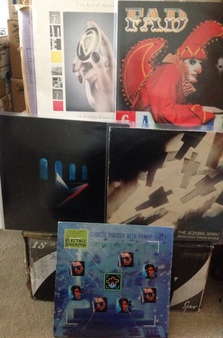
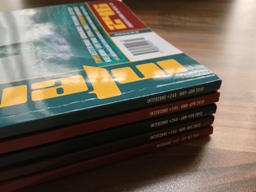
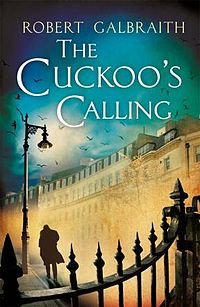
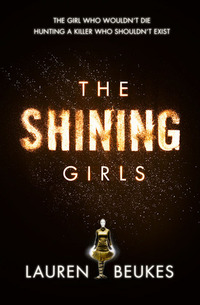


![[pic]](http://jmtd.net/log/./officesuite_ui/250x186-paper.png)
![[pic]](http://jmtd.net/log/./officesuite_ui/250x176-lo.png)